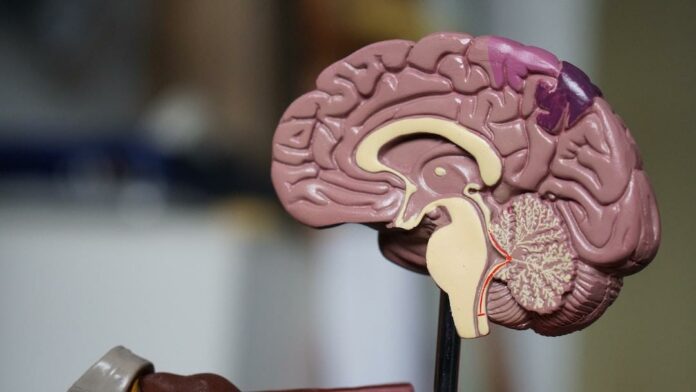In this article, we delve into the realm of Alzheimer’s disease. We examine the early signs, delve into the symptoms, understand the stages of Alzheimer’s, and explore coping mechanisms and treatments. Providing an in-depth understanding of this condition will help patients and caregivers deal with Alzheimer’s in a more proactive manner. So let’s start our journey into the world of Alzheimer’s disease.
Understanding Alzheimer’s Disease: A Brief Overview
Alzheimer’s disease is a progressive neurological disorder that primarily affects the elderly. It results in the loss of mental functions, like memory and judgment, due to brain cell degeneration. The disease is known for being the most common cause of dementia, a cognitive impairment that seriously hampers daily activities. Although the exact cause of Alzheimer’s disease is still a mystery, several factors are believed to contribute.
Age, genetics, brain injuries, and cardiovascular disease risks all make a person more prone to develop this disorder. It’s also valuable to understand that Alzheimer’s disease is not an inevitable part of aging but a specific illness affecting the brain. There are several stages of Alzheimer’s, all of which have different symptoms. The progression may be slow, sometimes up to 20 years from the first symptom to the last stage.
Deciphering the Early Signs of Alzheimer’s Disease
Understanding the early signs of Alzheimer’s disease can assist in early detection, a vital factor in mitigating the long-term impact of the disease. Early signs often include memory loss that impacts daily life, difficulty completing familiar tasks, difficulty with language, poor judgment, and changes in mood and personality.
A person in the early stage of Alzheimer’s may also lose the ability to plan or organize, find it hard to solve simple problems or become confused about times and places. It may be easy to dismiss these signs as aging or stress, but they could indicate a more profound issue. Of course, not all memory problems mean Alzheimer’s. Still, if these problems persist, it’s always wise to contact a health professional. Being proactive about your health can manage possible Alzheimer’s disease better.
Symptoms of Alzheimer’s Disease: A Closer Look

The symptoms of Alzheimer’s disease are varied and usually develop slowly over time. They range from mild memory loss to severe impairment that can interfere with daily activities. At the heart of these symptoms is memory loss. The most common early symptom of Alzheimer’s is difficulty recalling newly learned information. Other possible symptoms include confusion about time or place, difficulty handling money, trouble following conversations, and mood or personality changes.
As Alzheimer’s disease progresses, these symptoms become severe. The person may not recognize their loved ones or understand language. They may also experience hallucinations or delusions, and some may become aggressive. These symptoms can be distressing and challenging to manage for both the individual affected and their loved ones. However, many resources and treatments can provide relief.
Stages of Alzheimer’s Disease: From Mild to Severe
Alzheimer’s disease isn’t just one stage or level; it progresses through diverse stages from mild to severe. It starts with the preclinical stage with no visible symptoms, but changes might be happening in the brain. The next is the mild or early stage, characterized by memory loss, minor mood swings, and difficulties in word-finding. As Alzheimer’s progresses to the moderate stage, patients might have greater trouble remembering recent events, understanding others’ speech, and completing daily tasks.
Things become severe in the late stage of Alzheimer’s. Here, the sufferer might lose their ability to communicate, recognize loved ones, or take care of themselves. At this stage, around-the-clock care becomes necessary. Every individual will experience these stages of Alzheimer’s differently, so it’s important to stay alert to any changes and consult healthcare professionals for advice.
Coping Mechanisms and Available Treatments for Alzheimer’s Disease

Currently, there is no cure for Alzheimer’s disease, but there are coping mechanisms and treatments that can manage the symptoms. This helps patients maintain as much independence as possible and improves their quality of life. Coping mechanisms can include a balanced diet, regular physical activity, mental stimulation, and good sleep. Social engagement is also beneficial. Family and friends provide emotional support essential to the patient’s well-being.
Medical treatments involve medications that can slow the progression of Alzheimer’s and manage symptoms. These drugs are not a cure, but they can improve a patient’s quality of life. Living with Alzheimer’s or caring for someone with Alzheimer’s can be challenging. However, a proactive approach combined with available treatments can make this journey slightly smoother.
As you can see, understanding the early signs and symptoms of Alzheimer’s Disease, being aware of the stages, and knowing the available coping mechanisms and treatments can make a difference. Overall, it empowers us to take a proactive approach to a condition that affects millions globally. Follow our advice and you can take the best possible care of yourself or your loved one with Alzheimer’s.


